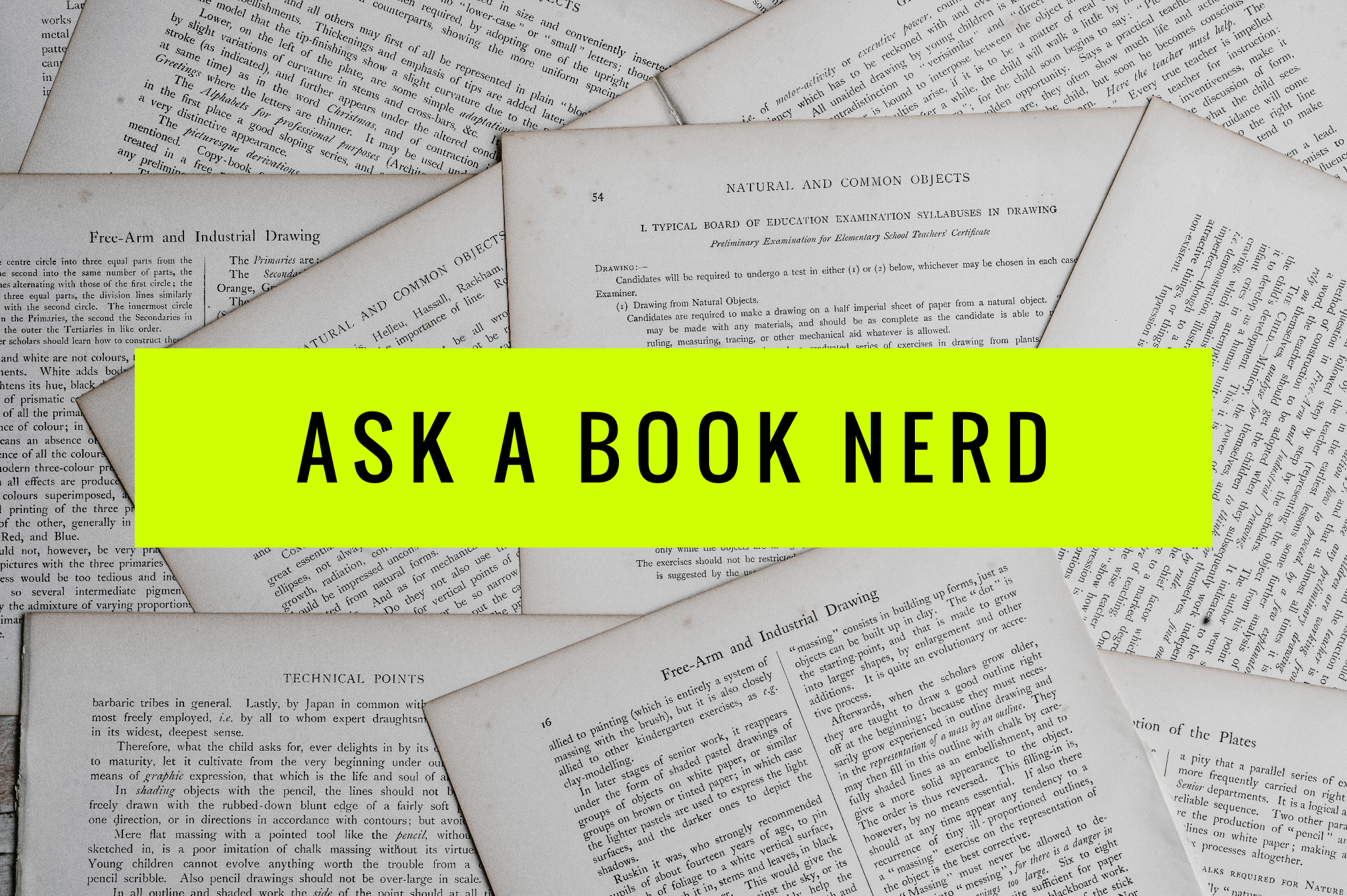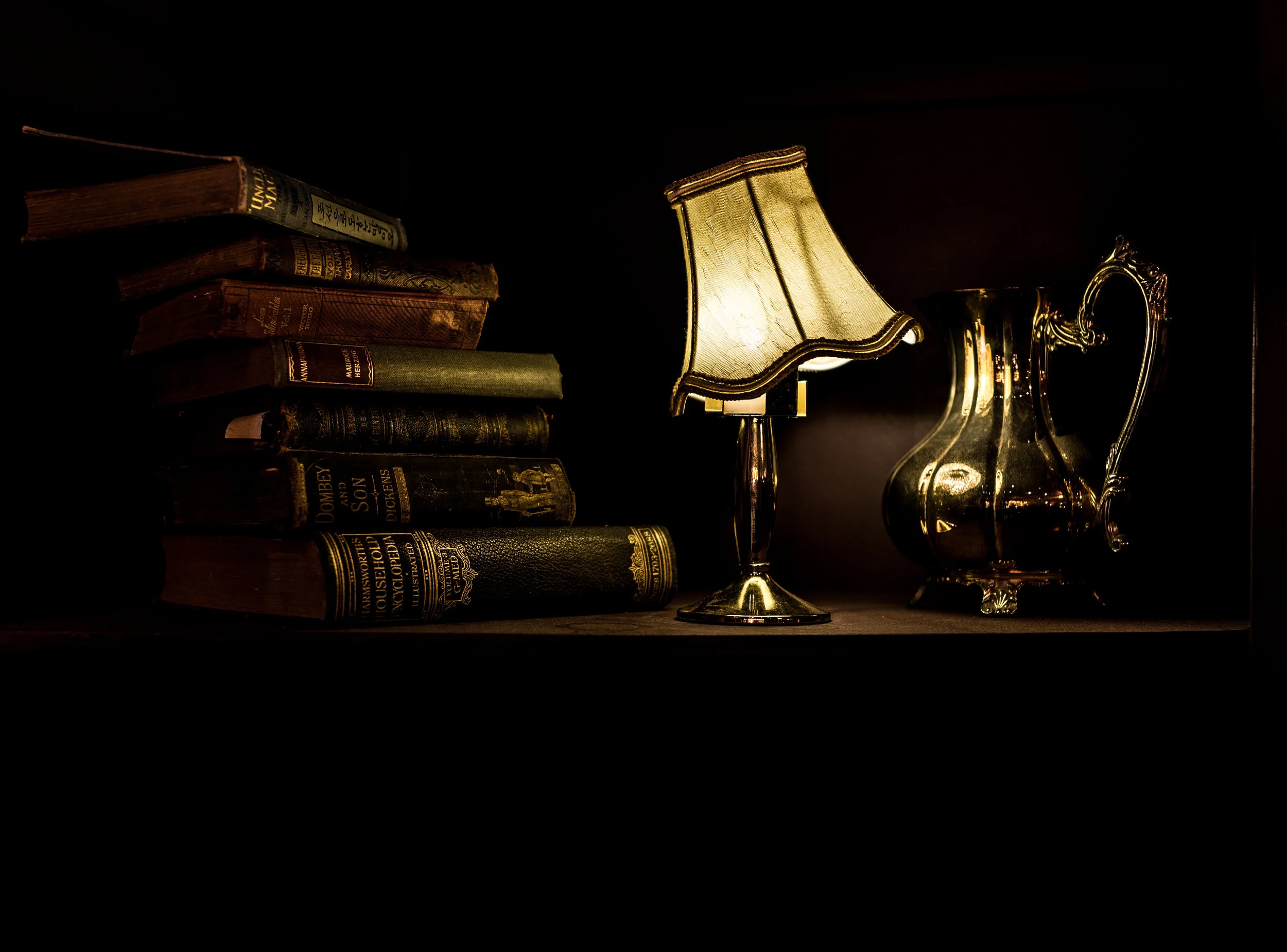Did You Know Book Clubs Helped Women Get the Vote?
[image description: a person sitting on a curb reading a paperback book. The photo is zoomed in so it only shows the person’s arm and knees.]
Funny thing. I’ve been writing this book blog for nearly 5 years and it just occurred to me that I don’t think I’ve ever written about the research on turn-of-the-century book clubs I did in college. How could I forget to mention that?!
Let me back up. I went to a private liberal arts college where every January we were encouraged to do something different for the month. That could mean taking a class like apocalyptic literature (which I did) or the chemistry of color or a music class on how to sing in a way that works with the acoustics of the shower. It could also mean taking an international trip, contracting your own research study (which I also did), or assisting a professor with their research.
In 2010, I decided to assist one of my favorite professors with his research and he was studying the politicization of women’s educational groups at the turn of the century.
A little background. In the decades before women’s suffrage, most women weren’t educated beyond what we would call basic primary school because their home training (cooking, cleaning, childrearing, etc.) was prioritized. Women often weren’t expected to do much besides be a mother and housewife, so it was thought they didn’t “need” an education. Back then, children were often educated at home, at least for the first couple of years, so women, mostly mothers, began advocating that they should be allowed to educate themselves, otherwise, how could they be expected to raise educated children?
My professor’s hypothesis was that it was through educational and social clubs women formed that they gained the knowledge, agency, and community needed to become politicized and organized enough to get women’s suffrage. These “educational and social” clubs––sometimes just called “women’s clubs”––were, in fact, book clubs.
This research led me to spend a month in the archives of the Birmingham Public Library, reviewing boxes of pamphlets where the minutes from a handful of local women’s clubs were printed. Several of the clubs began around 1908, but some went back as far as 1902, if my memory serves. Each club operated slightly differently, though many meetings went something like this. For each meeting, one of the members would have chosen or been assigned a topic to read up on and she would present what she learned to the rest of the group. Each woman would take turns hosting the club––and of course providing refreshments––and presenting what they learned. They would also occasionally have guest speakers (who were almost always men) come present on a topic of their expertise.
But more often than not, the club meetings were book clubs. They read mostly history since the goal was, at least at first, to become educated for the purpose of passing on that education to their children. They also read science magazines detailing the latest discoveries of the day. Math and literature were mostly absent from the curriculum. And much of the history they read was ancient history––lots about the Greeks and Romans and Ottomans and their wars and empires and rise and fall.
The pamphlets with the meeting minutes were published once a year as a memento, though it also served as a record of the group’s activities. They often listed what they were reading, what speakers they listened to, who presented, and who was in attendance.
At first, I remember reading these pamphlets and finding them exceedingly boring. Few if any of the books they read are still around today, much less actually being read. But as I crept closer to 1920, I saw the politicization of the groups. I first noticed it in the minutes from 1914, 1915, and 1916. The women’s clubs had gone from reading about science and history to reading books about social issues, such as women’s rights and civil rights. It was only a matter of time before they started inviting politicians to speak to their groups or going to hear politicians speak.
Learning more about the world, especially the way government worked, inspired the women to start asking their husbands questions. And they didn’t like the answers they were hearing. They wanted their husbands and men in positions of power to do more for women and children. They began to resent having to educate and care for children all day, then turn around and do all the household chores.
Women began going to rallies. The women’s clubs began organizing to support the politicians who promised to do more for them. Women’s voices and opinions became a matter of great importance. Their support was sought. Men in power had to, perhaps for the first time, start bending to their demands.
It started with a book or two here and a discussion about that book there, and it turned into a movement.
Being on the other side of history, especially now pushing a century after the fact, we know women got the vote. But until I started doing this research for my professor, I didn’t really understand how they got the vote.
And some of these women’s clubs are still around today! Though their objectives have changed. The handful that remain are mostly social clubs today and don’t have a book club component. They do, however, still occasionally organize volunteer days and fundraisers, so they’re still doing good work in the community.
Book clubs can be powerful agents of change even today. Members can choose to read books about relevant social issues, as well as books by and about diverse peoples. Education is power.
It’s been several years since I graduated college, though that period of research is one of the things I remember most vividly. I hope it inspires you to join or start a book club and start making waves.






